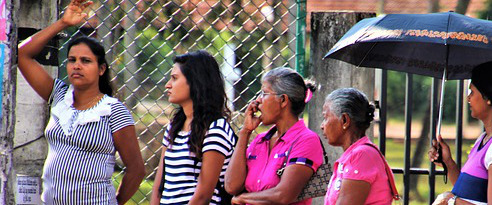In Japan, a pregnant employee was reprimanded for getting pregnant outside the company’s “pregnancy schedule”. The company introduced a rotation system for employees wanting to get married or have a child, etc. This type of planning is not uncommon in companies with a predominantly female workforce.
“The manager of the childcare facility where the woman worked had drawn up a rota, listing the order in which female employees could get married or pregnant. Everyone had to abide by this rule of thumb, wait their turn and not jump the queue”. Some found out that they would have to wait 8 or 9 years before having a child or else be penalised “for their selfish behaviour”, potentially culminating in termination of contract (20%).
In Sri Lanka, employers demand that women use contraceptives before making them a job offer. In the job market, recruitment agencies even go as far as “guaranteeing no pregnancies for three months”. Six of these agencies have been closed down by the government, which is trying to eradicate such practices. These women, who are now the breadwinners since the death of their husbands (civil war), have no option but to work and generally refuse to testify. Investigators have noted that the agencies promote Depo-Provera, an injectable contraceptive that is effective for three months.
Rothna Begum, a researcher into women’s rights at the Human Rights’ Observatory explains: “Migrant workers in the Gulf are treated like merchandise by agencies and employers to the extent that they [the workers] are no longer in control of their own bodies and cannot make their own choices on migration. As soon as they find a job, a “power dynamics” culture unfolds which allows exploitation and abuse to prosper.”
Slate (04/4/2018), The Guardian (06/4/2018)

